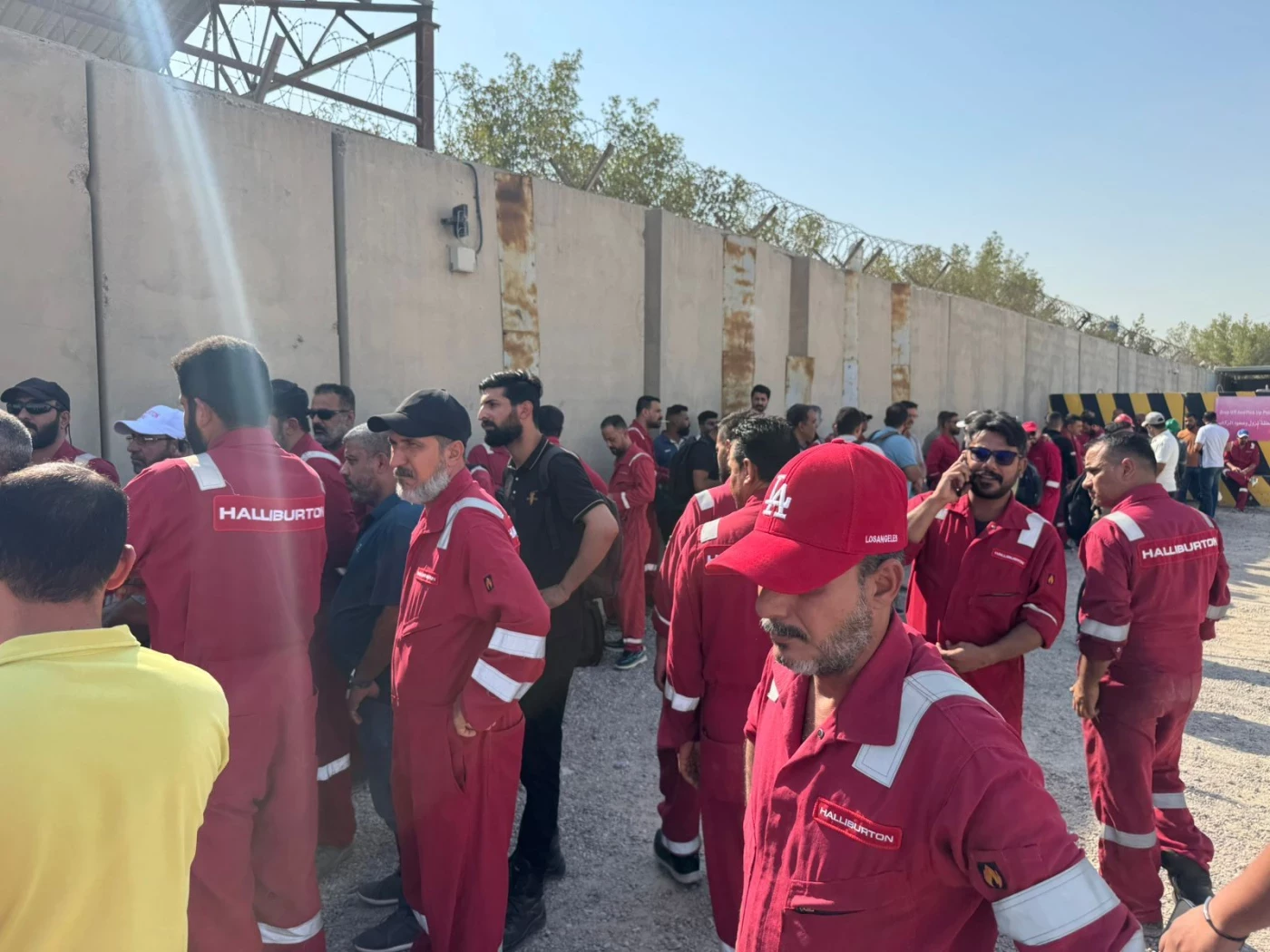ERBIL, Kurdistan Region of Iraq - Employees of the US energy giant Halliburton in Basra staged a sit-in for the second day on Thursday to protest what they described as “arbitrary” dismissals targeting dozens of Iraqi workers, accusing the company of seeking to replace them with foreign labor.
Issam Dawood, one of the protest representatives, told The New Region that “most of the employees targeted for dismissal are engineers and workers with experience ranging between five and fifteen years.”
He said, “The goal of the sit-in is to cancel the arbitrary decision and ensure the reinstatement of the employees so they can carry out their work normally.”
According to Dawood, “The company’s management prepared a list including 42 employees to be dismissed, and I was among the first included in the decision, which sparked anger among the staff.”
He added that the protest had received a partial response from the government in an attempt to reach a quick solution that satisfies all parties and guarantees employees’ rights.
Dawood said the sit-in would continue until the meeting results are announced and the arbitrary decision is canceled, stressing that the protesters’ main demands focus on reinstating employees “without any retaliation or discrimination and protecting their acquired rights.”
The protest came as Prime Minister Mohammed Shia’ al-Sudani met in Baghdad with Halliburton's Eastern Hemisphere President Shannon Slocum to discuss expanding cooperation with the US oilfield services company.
A statement from Sudani’s office said the prime minister underlined that “the presence of major oil companies in Iraq reflects the government’s interest in the energy sector and its efforts to develop it according to modern international standards through the best energy companies.”
Sudani emphasized the government’s vision for developing the oil and gas sectors, its commitment to maximizing the utilization of associated gas, and increasing production of petroleum derivatives.
He also stressed “the importance of expanding cooperation with Halliburton given its expertise and capabilities in extraction and refining, as well as its possession of cutting-edge global technologies,” noting that Iraq supports the company’s work in developing the Naher Bin Omar and Sindibad fields in Basra province.
For his part, Slocum said Halliburton is committed to Iraq, highlighting “the progress witnessed across various sectors and the country’s stability and openness to major global industrial companies.”
He added that “the company is committed to providing the latest technological solutions to develop oil and gas fields, after finalizing the contract model, and will employ modern administrative and technical methods, while also committing to developing the skills of Iraqi personnel working with the company.”
Halliburton has a long association with devloping natural resources in Iraq, the the firm's ties to then-US Vice President Dick Cheney in the run up to the 2003 US-led invasion and the subsequent awarding of energy contracts causing a political firestorm. Formerly the CEO of the company, Cheney continued to receive deferred compensation during his tenure as vice president, raising accusations of him having a vested interest in Halliburton obtaining lucrative oil deals after the fall of the Baathist regime.



 Facebook
Facebook
 LinkedIn
LinkedIn
 Telegram
Telegram
 X
X


